Munich, often referred to as München in German, is a captivating city situated in the southern part of Germany. As the capital of the Bavarian region, Munich holds a central role in the cultural, economic, and historical tapestry of the country. With a rich heritage that spans centuries, this vibrant city is known for its unique blend of traditions, modernity, and innovation.
History
Early Settlement Munich’s history dates back to the 12th century when it was founded as a market town by Henry the Lion, Duke of Saxony and Bavaria. Over the years, it evolved into a fortified settlement and eventually grew into a significant regional center.
Medieval Munich During the Middle Ages, Munich experienced significant growth and became a hub for trade and commerce. The city’s architecture still reflects its medieval roots, with charming cobblestone streets and historic buildings.
Bavarian Capital In 1506, Munich became the capital of the Duchy of Bavaria under the reign of Duke Albrecht IV. The city flourished culturally and economically, becoming a center for arts and sciences.
World War II and Reconstruction Munich faced extensive damage during World War II, but it was meticulously reconstructed in the post-war years. Today, it seamlessly blends historical architecture with modern infrastructure.
Geography and Climate
Geographic Features Munich is located in the southern part of Germany, near the Bavarian Alps. The city’s proximity to these majestic mountains offers residents and visitors access to stunning natural beauty and recreational opportunities.
Climate Munich experiences a continental climate with cold winters and warm summers. The city is famous for its pleasant summers, making it an ideal destination for outdoor activities and festivals.
Culture and Traditions
Bavarian Culture Munich is synonymous with Bavarian culture, known for its traditions, such as lederhosen, dirndls, and the Bavarian dialect. The city takes great pride in preserving and celebrating its cultural heritage.
Oktoberfest Munich is renowned for hosting the world’s largest beer festival, Oktoberfest. This annual event attracts millions of visitors who gather to enjoy traditional Bavarian food, music, and, of course, beer.
Museums and Art The city boasts a wealth of museums, including the Alte Pinakothek, Neue Pinakothek, and the Deutsches Museum, which showcase a wide range of art, history, and science.
Landmarks and Attractions
Nymphenburg Palace Nymphenburg Palace, a stunning Baroque palace, is one of Munich’s most iconic landmarks. It offers a glimpse into the city’s royal history and features beautifully landscaped gardens.
Marienplatz The central square, Marienplatz, is the heart of Munich. It is surrounded by historic buildings and is home to the famous Glockenspiel, a charming musical clock.
Frauenkirche The Frauenkirche, or Cathedral of Our Dear Lady, is a towering Gothic cathedral with distinctive onion domes that dominate the Munich skyline.
English Garden The English Garden is one of the world’s largest urban parks, providing residents and tourists with a peaceful oasis for relaxation and outdoor activities.
Economy
Industry Munich is a thriving economic center, with a diverse range of industries, including manufacturing, finance, and technology.
Finance The city is home to several major banks and financial institutions, contributing to its status as a global financial hub.
Technology Hub Munich has gained recognition as a burgeoning technology hub, hosting numerous startups, research institutions, and multinational corporations.
Education and Research
Universities Munich boasts prestigious universities such as Ludwig Maximilian University and the Technical University of Munich, attracting students and researchers from around the world.
Research Institutions The city hosts a plethora of research institutions, including the Max Planck Society and the Fraunhofer Society, fostering innovation and scientific advancements.
Transportation
Public Transit Munich has an efficient public transportation system, including trams, buses, and a subway network, making it easy to navigate the city.
Airports The city is served by two major airports, Munich Airport and Memmingen Airport, offering convenient access to international and domestic destinations.
Road Network Munich’s well-maintained road network connects it to other major cities in Germany and Europe, facilitating travel by car.
Cuisine
Traditional Bavarian Dishes Munich is a gastronomic delight, offering traditional Bavarian dishes like sausages, pretzels, and schnitzels. Beer gardens and beer halls are ubiquitous, serving local brews and hearty food.
Beer Culture Munich’s beer culture is deeply ingrained in its identity. The city is famous for its beer gardens, where locals and tourists come together to enjoy a cold beer and socialize.
Events and Festivals
Oktoberfest Oktoberfest, the world-famous beer festival, is a highlight of Munich’s calendar. It runs for two weeks, featuring parades, music, and merriment.
Christmas Markets The city’s Christmas markets, or Christkindlmarkts, are a magical spectacle, with stalls selling festive treats, crafts, and holiday decorations.
Fasching (Carnival) Fasching, Munich’s version of Carnival, is celebrated with colorful parades, costumes, and parties in the weeks leading up to Lent.
Sports
Football (Soccer) Munich is home to two prominent football clubs, FC Bayern Munich and TSV 1860 Munich, both with passionate fan bases and a rich history of success.
Olympic Legacy Munich hosted the 1972 Summer Olympics, leaving a lasting legacy with iconic venues like the Olympiapark and the Olympic Stadium.
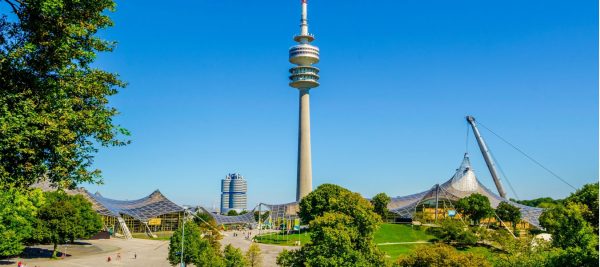
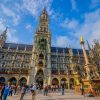
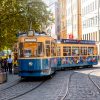
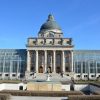
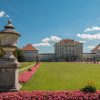
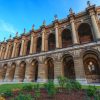
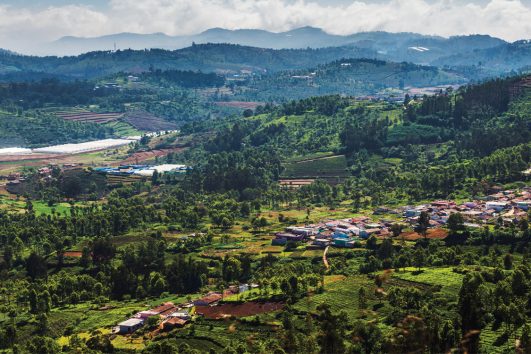
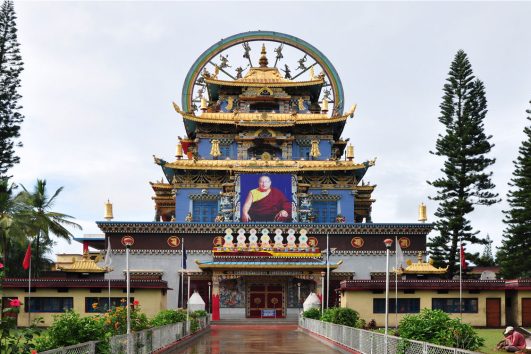
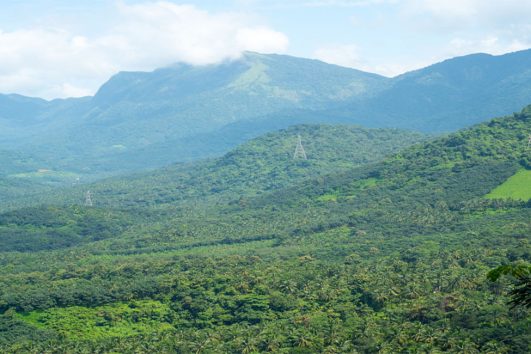
Tour Reviews
There are no reviews yet.
Leave a Review